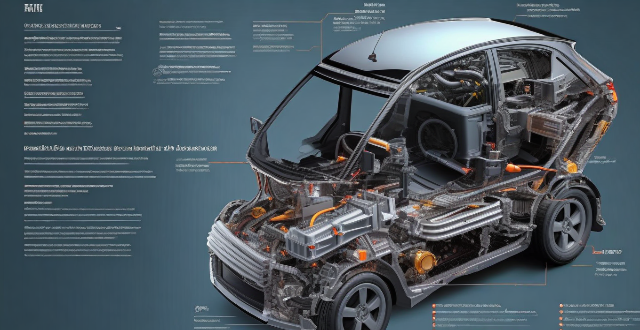A car's fuel system is a crucial component that ensures the proper functioning of the engine and overall performance of the vehicle. It consists of several interconnected components, including the fuel tank, fuel pump, fuel filter, fuel injectors, engine control unit (ECU), and exhaust system. The fuel system works by delivering the right amount of fuel to the engine at the right time through a series of steps involving these components. Understanding how the fuel system works can help drivers maintain their vehicles better and ensure optimal performance on the road.

How Does a Car's Fuel System Work?
The fuel system in a car is responsible for delivering the right amount of fuel to the engine at the right time. It is an essential component that ensures the proper functioning of the engine and the overall performance of the vehicle. Here's a detailed explanation of how a car's fuel system works:
1. Fuel Tank
The fuel tank stores the gasoline or diesel fuel, which is then supplied to the engine. The tank is designed to be durable and leak-proof to prevent any fuel from escaping into the environment.
2. Fuel Pump
The fuel pump is located inside the fuel tank and is responsible for sending fuel from the tank to the engine. It operates by creating a vacuum that draws fuel through a filter and into the pump. From there, it is pushed through fuel lines towards the engine.
3. Fuel Filter
The fuel filter is located between the fuel pump and the engine. Its primary function is to remove impurities and contaminants from the fuel before it reaches the engine. This helps to protect the engine from damage caused by debris or other harmful substances.
4. Fuel Injectors
Fuel injectors are electronic devices that spray a fine mist of fuel into the engine's cylinders. They are controlled by the engine control unit (ECU), which determines the exact amount of fuel needed for each combustion cycle based on various factors such as engine speed, load, and temperature.
5. Engine Control Unit (ECU)
The ECU is the brain of the fuel system. It monitors various sensors throughout the vehicle, including those related to engine performance, and adjusts the amount of fuel injected into the engine accordingly. This ensures optimal fuel efficiency and performance under different driving conditions.
6. Exhaust System
After the fuel is burned in the engine, the exhaust system expels the resulting gases out of the vehicle. This system includes components like the exhaust manifold, catalytic converter, and muffler, which work together to reduce pollution and noise generated by the engine.
In conclusion, a car's fuel system consists of several interconnected components that work together to deliver the correct amount of fuel to the engine at the right time. By understanding how these components function, drivers can better maintain their vehicles and ensure optimal performance on the road.